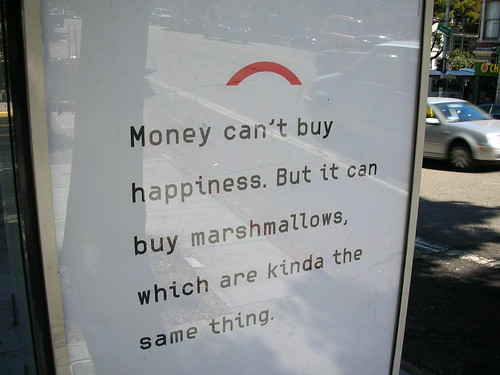Can money buy happiness?
.There is consistent evidence for a moderate negative association between the pursuit of financial goals and subjective well-being (SWB; cf. Dittmar, 2008; Kasser & Kanner, 2004). However, there is some evidence to suggest that this negative link may hold only with respect to particular motives for wanting money (Sheldon, Ryan, Deci, & Kasser, 2004; Srivastava, Locke, & Bartol, 2001). We propose the quest for a happier self and success as two additional motives not examined previously, and examine a model in which the financial goal-SWB link is reduced to nonsignificance once money-motives are taken into account. Structural equation modeling in two studies, one with student samples from the United Kingdom and Iceland (N = 145, N = 139) and one with professional employees in the United Kingdom (N = 261), provides empirical support for the model, and demonstrates that the quest for a happier self through money is a particularly negative predictor of well-being.
Source: “IT’S NOT THE MONEY, IT’S THE QUEST FOR A HAPPIER SELF: THE ROLE OF HAPPINESS AND SUCCESS MOTIVES IN THE LINK BETWEEN FINANCIAL GOALS AND SUBJECTIVE WELL-BEING” from Journal of Social and Clinical Psychology
Join 25K+ readers. Get a free weekly update via email here.
Related posts:
Things you didn’t know about happiness
How to make yourself happier in just a few seconds
Do happy people love their jobs or do good jobs make people happy?





